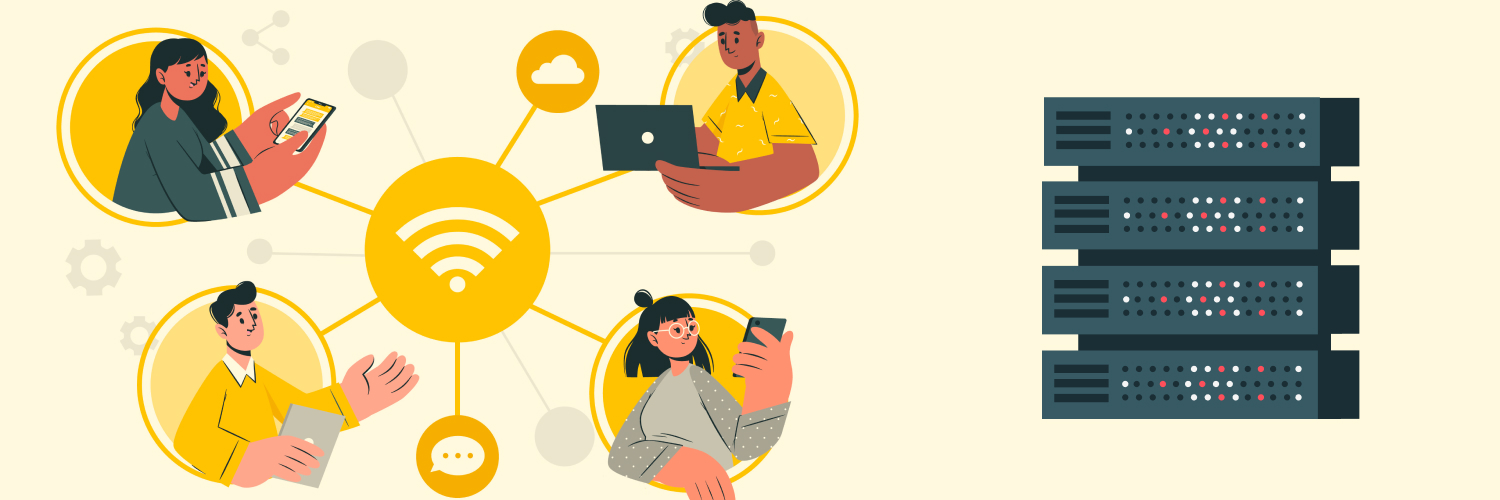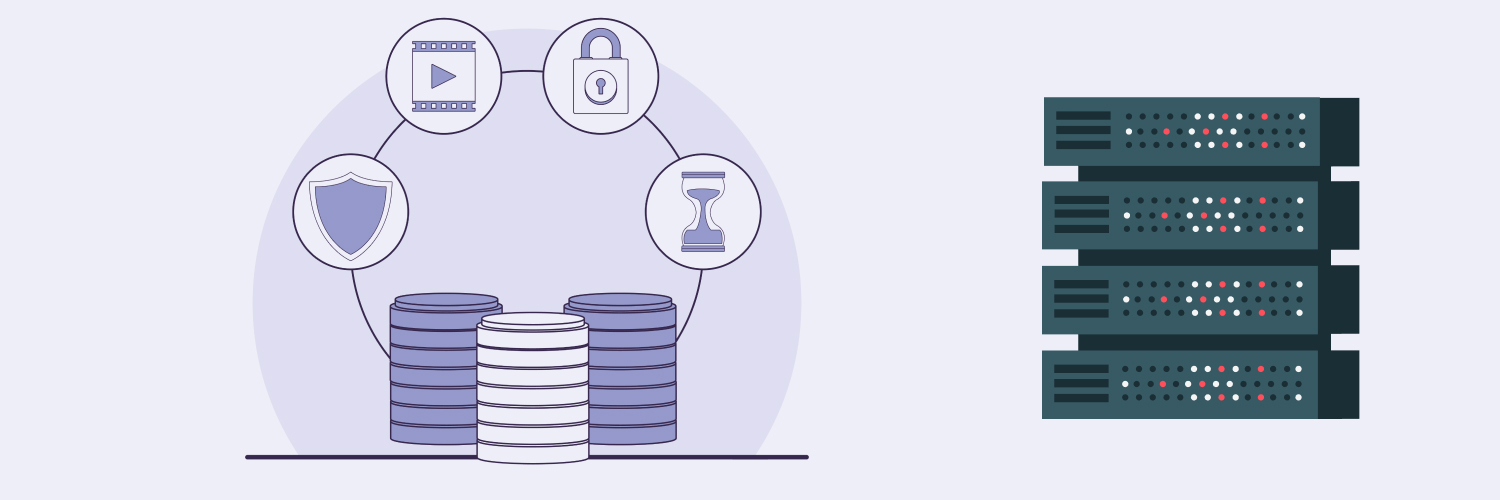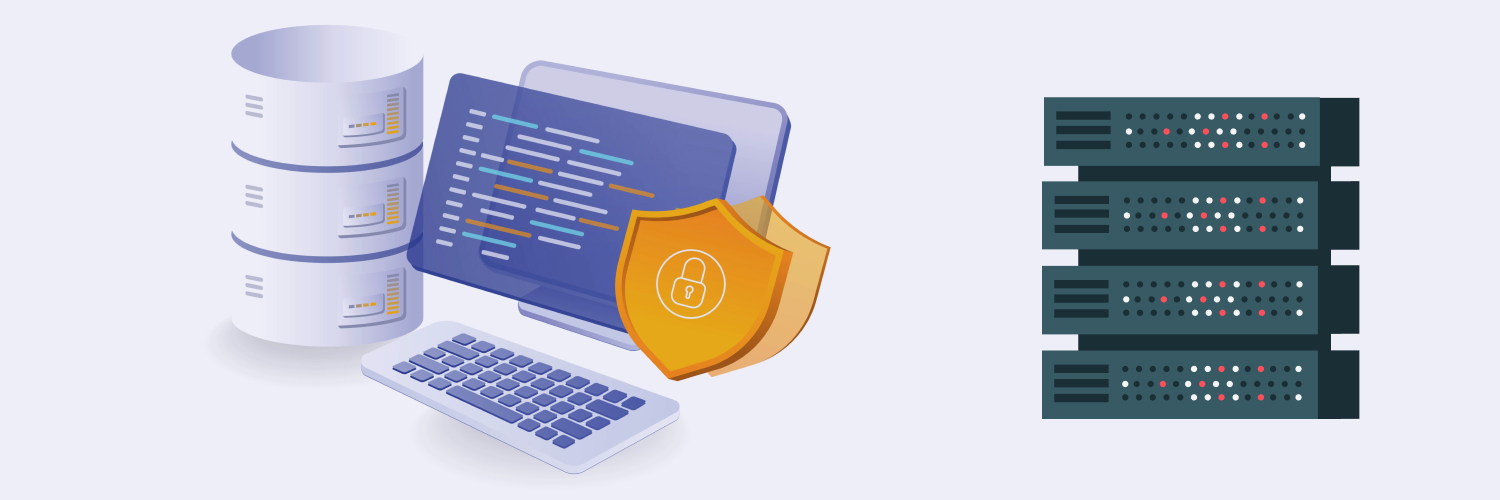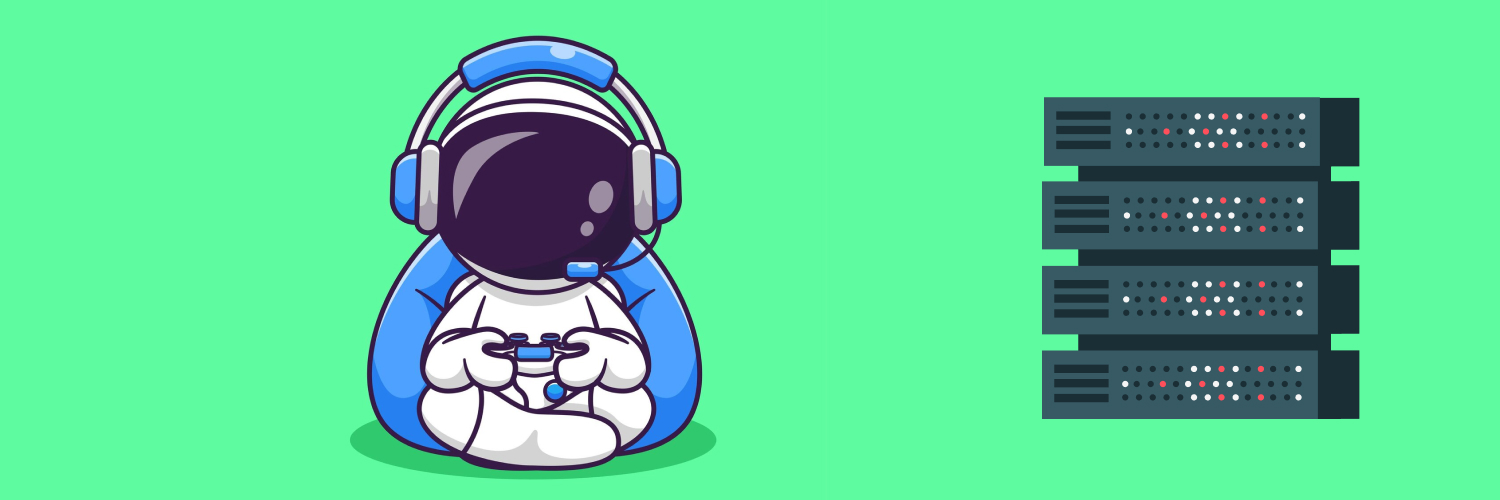What the Future of Web Scraping and Alternative Data Holds in 2023 and Beyond
As large and small organizations look for alternative data streams to gain a competitive edge, web scraping and alternative data are becoming increasingly popular. But before we can explore the future of these topics, it’s essential to get some background information about how organizations mined data in the past.
Before web scraping gained traction, organizations and individual entrepreneurs relied on traditional data sources for competitive analysis. For instance, they had to spend considerable amounts of money to acquire data from different sources. Additionally, alternative data streams, such as social media and mobile usage data, were unavailable for analysis.
However, web scraping and alternative data have changed how organizations access and analyze information today. It’s now possible to conduct automated extraction of publicly available data from websites with the help of web scraping. Organizations and individuals can then use this data to discover opportunities, trends, and insights that will give companies an edge in their respective industries.
Web scraping and alternative data have also become a significant source of the so-called “Big Data” revolution. Alternative data sources allow organizations to capture and analyze different types of data that were previously not available. This includes social media, news articles, machine-generated data from sensors, and more. With the help of web scraping, organizations can collect and mine these data points for insights that inform future decision-making.
This article looks at the future of web scraping and alternative data in 2023. It examines how advances in artificial intelligence, machine learning, and natural language processing have made it easier to process ever-growing amounts of data and extract valuable insights. It also looks at how different industries use web scraping and its potential for future applications.
What is Scraping a Website?

Before looking into the future of web scraping, let’s first understand what it is. Scraping a website is one of the most efficient ways to gather large amounts of data from different sources. Web scraping, also known as web harvesting or web data extraction, is the process of extracting information from publicly available sources on the internet. Organizations and entrepreneurs can use this data for market research, competitor analysis, and pricing intelligence.
What is Alternative Data?

In simple words, alternative data is any data source that isn’t traditional market data and is not available through conventional sources, such as financial statements and SEC filings. It can range from satellite imagery to geolocation data, social media posts, news articles, and more. The use of alternative data is becoming increasingly popular as more organizations realize the potential to uncover valuable insights from them.
However, this term can easily be confused with windows alternate data streams (ADS). Windows can create alternate data streams on NTFS file systems, but these are not alternative data sources. They are simply additional pieces of content that are attached to an NTFS file system.
Popular Use Cases of Web Scraping

The past couple of years has seen a steady growth in the use of web scraping and alternative data. This trend is only expected to continue into 2023 and beyond as organizations strive to gain insights and make future predictions based on data. To better understand the future of this trend, let’s look at some popular use cases in the last couple of years:
- Market research and competitor analysis: Companies use web scraping to collect data from their competitors’ websites, such as pricing information, product descriptions, and customer reviews. They can then use this data to understand the industry landscape better and develop future strategies.
- Pricing intelligence: Companies also use web scraping to collect pricing data from different websites and compare them. This is useful for price optimization, cost analysis, and ensuring that a company’s pricing is competitive.
- Social media analysis: Organizations use web scraping to collect data from social media platforms. They then use this data to measure the success of an organization’s marketing campaigns and identify future opportunities.
- News aggregation: Individuals and organizations also use web scraping to collect data from sources such as news websites and blogs. They then use this data to gain insights into the industry and identify future trends.
- Trend forecasting: Organizations use web scraping and alternative data to collect data from weather, economic indicators, and government policies. They then analyze this data to make predictions and develop strategies for future trends.
- Sentiment analysis: Web scraping companies also collect text-based data from sources, such as news articles and customer reviews. They then use this data to gain insights into customer sentiment to identify future growth and marketing opportunities for an organization.
- Risk management: Organizations use web scraping and alternative data to collect data from sources such as financial markets, credit agencies, and regulatory bodies. They then use this data to identify future risks and develop strategies that minimize the risk of future losses.
Predictions on the Future of Web Scraping and Alternative Data in Detail

Industry leaders have predicted that the use of web scraping and alternative data is here to stay as organizations look for alternate data sources for competitive intelligence. For instance, a report by Grand View Research valued the international alternative data industry at around $4.4 billion in 2022 and predicted that it would grow exponentially — at a CAGR of 52.1 percent — over the next seven years (2023-2030).
Another report by Research Reports World has predicted that the global web scraper software market will surpass $196.88 million by 2030 from $149.09 million in 2018 at an impressive CAGR of 2.75 percent. This alone is a testament to the future potential of web scraping and alternative data.
The use of generative AI will increase
The need for alternative data has necessitated using advanced technologies such as artificial intelligence (AI). AI-powered solutions can help organizations and entrepreneurs quickly gather and process data from various sources. Generative AI is one such tool that organizations can use in web scraping and alternative data. This technology uses AI models to generate new data points from an existing data set. Web scraping companies can use generative AI algorithms to create detailed customer personas, improve customer segmentation, or even create synthetic datasets that organizations can use for training AI models.
In addition, generative companies can use AI to generate large datasets from small amounts of data. For example, companies can use a small dataset that contains customer information such as age, gender, and contact details to generate detailed customer profiles that include preferences and buying habits. This type of AI-generated data can provide valuable insights to organizations and help them with future decision-making.
In light of this, it’s safe to say that the future of web scraping and alternative data will include the use of generative AI as organizations strive to gain a competitive edge through AI-generated datasets.
Machine Learning will become more valuable
Machine Learning (ML) is a subset of AI that is well-suited to generalize and recognize patterns in data. As such, it’s become increasingly important for web scraping and alternative data. Organizations can use Machine Learning algorithms to create advanced scraping algorithms that are more efficient and accurate than traditional methods. Additionally, they can use ML to classify text data on webpages and recognize patterns in HTML structure.
For instance, ML algorithms can identify a specific type of content on a website and extract it automatically. Organizations can quickly gather the correct information from different sources and process it in a much shorter time. Given the immense potential of ML, it’s safe to say that it will become increasingly helpful for web scraping and alternative data in the future.
Natural Language Processing will become essential
The future of web scraping will involve more advanced technologies, such as natural language processing (NLP). NLP refers to the ability of a computer system to understand and process human language. It enables machines to read, interpret, and understand text data like humans. This will be crucial for future web scraping applications, enabling computers to read and interpret text data from different sources automatically.
Organizations are already using NLP-powered web scraping for various applications, such as sentiment analysis of news articles, customer reviews, and social media posts. Additionally, companies can use NLP for more advanced use cases such as automated market analysis, predictive analytics, and more. NLP technology will become essential in the future of web scraping applications as it progresses.
Node.js may become the future of web scraping
Python has long been the go-to language for web scraping and alternative data, but with the rise of headless browsers, Node.js is becoming increasingly popular. Node.js is a JavaScript-based runtime environment that allows developers to use one language for both the front and back end of websites, making it a powerful tool for web scraping. Node.js also offers libraries such as Puppeteer, which makes it easier to control headless browsers for web scraping.
Given its versatility and flexibility, Node.js is becoming the future of web scraping in 2023 and beyond. Web scrapping tools can easily use this language to control headless browsers, generate datasets from small amounts of data, and perform natural language processing. You can expect to see more organizations and enterprises relying on Node.js for their future web scraping needs.
The legal uncertainties surrounding web scraping in the U.S. will become clearer
Previously, the legal uncertainties surrounding web scraping were a significant concern for organizations. For instance, laws such as the Computer Fraud and Abuse Act (CFAA) were a massive obstacle to web scraping activities. The CFAA generally prohibits accessing protected computer systems without authorization, which organizations often interpret to include websites open to the public. However, a ruling by the 9th U.S. Circuit Court of Appeals in a case against hiQ Labs Inc., a data analytics company, has cleared up some of the legal uncertainties surrounding web scraping. The court concluded that the Computer Fraud and Abuse Act does not apply to websites open to the public.
This is significant because companies can no longer use the CFAA to stop scraping public-facing data. You should expect to see more cases such as these, which will help to make the future of web scraping in the U.S. clearer and more secure for companies using website scraping tools. Other uncertainties affecting web scraping and alternative data include privacy, security, and international laws. While you cannot expect to resolve these issues overnight, you should anticipate that the industry will enact laws to better regulate web scraping and alternative data.
The demand for alternative data and web scraping will grow
Many organizations already use web scraping and alternative data to gain a competitive edge. For instance, financial institutions and hedge funds are using alternative data to make future predictions and project trends. Additionally, retailers use web scraping to monitor their competitors’ pricing strategies while market research companies use it for trend analysis.
As these organizations continue to look for alternate data sources, the demand for web scraping and alternative data will only grow. According to Lowenstein Sandler’s research, three out of four alternative data users spend between $1 million and $5 million per year on it. Moreover, a staggering 80 percent reported plans to expand their budget for 2023, making it clear that the demand for alternative data is only growing.
As organizations look for ever-increasing amounts of data, you should expect the cost of web scraping and alternative data to increase. This means that organizations will have to pay more for their data needs as the demand for these services increases. This increase in costs will affect how organizations use website scraping tools and alternative data in the future.
There will be consolidation and expansion of web scraping and alternative data businesses
You should expect the future of web scraping and alternative data to involve more consolidation and expansion of existing businesses. For instance, many companies seek to acquire smaller web scraping and alternative data providers to increase their competitive edge. Industry leaders expect this trend to continue as more organizations look for alternate data sources to stay ahead of the competition.
Additionally, existing businesses specializing in web scraping and alternative data will expand their services to meet the future demands of their customers. Thus, these businesses will have to increase their data collection and processing capacity, develop new technologies such as generative AI, and employ more staff to meet future needs.
The anti-bots race will continue
One of the biggest challenges to web scraping is ensuring that organizations can access and extract data without having their requests flagged as malicious by website owners. This is a common problem that website scraping tools often encounter when they access websites indiscriminately and too frequently. To this end, website owners have employed different methods to mitigate this issue, resulting in the anti-bot race.
The anti-bot race will continue into 2023 and beyond as website owners and web scraping providers strive to stay ahead of the curve. Website owners will continue to employ different methods, such as CAPTCHAs (Completely Automated Public Turing Tests to Tell Computers and Humans Apart) and IP whitelisting to restrict access from suspicious sources. On the other hand, web scraping providers will continue improving their techniques to allow for smoother and more effective website access.
Self-regulation initiatives will emerge
In light of the growing demand for web scraping and alternative data, you should expect to see self-regulation initiatives emerge in 2023 and the future. There are currently no laws that specifically address web scraping. The only thing that exists to regulate these activities is the best practices and guidelines set by web scraping providers themselves. However, this is an inadequate attempt to regulate web scraping since it does not prevent scraping activities from taking place in an unethical or deceptive manner. This also leaves a lot of room for organizations and individuals to abuse the system and make unauthorized access to websites.
In the future, you can expect these best practices to become formalized into laws and regulations governing website scraping tools. This will ensure that organizations use website scraping ethically and responsibly, without malicious intent. In addition, self-regulation initiatives will help to protect website owners’ interests by ensuring that their data is not misused or abused.
The use of pressure tactics by website owners will increase
Many cases concerning web scraping that have gone to court have resulted in a ruling favoring website scrapers. This has made some big companies so desperate to prevent scraping tools from crawling and extracting data from their sites that they have resorted to pressure tactics, such as threatening legal action that would be too costly for small companies to afford or sending cease-and-desist letters.
As the demand for web scraping and alternative data grows, you can expect to see more companies resort to these tactics. It’s safe to say that if the courts continue to favor an open public internet — and anti-bot techniques aren’t good enough to stop web scraping — then websites will try to prevent scraping by pressuring scrapers with legal action.
The demand for proxy services will grow
Proxying is essential to web scraping, as it allows anonymous and secure access to websites. Proxies help mask the user’s IP address and hide their real identity when accessing websites. As organizations look for more secure ways to access websites, the demand for proxy services will grow.
Moreover, proxies will become more necessary as the anti-bot race continues and website owners employ more sophisticated methods to detect malicious traffic. As a result, you can expect to see an increase in the use of proxy services.
Rayobyte is well-positioned to capitalize on this future trend. We can provide reliable solutions for future web scraping needs with our two main product lines: data center and residential proxies. Our data center offerings balance price, performance, and stability, while our residential proxy offerings offer more privacy and anonymity. We believe Rayobyte is well-suited to meet future web scraping needs and the growing demand for proxies.
How to Check if a Website Allows Web Scraping

While web scraping can help to gather data, it is vital to ensure that the website you are scraping allows it. Some websites may not permit scraping due to legal or copyright issues.
Look at the website’s text file
You can check if a website allows web scraping by looking at its robots.txt text file. This text file contains information about which parts of a website you can access and scrape. To do so, type robots.txt after the website URL, for example, https://www.example.com/robots.txt. For instance, if the robots.txt text file contains a ‘Disallow’ directive, web scraping is not allowed on the website. On the other hand, if the robots.txt text file contains an ‘Allow’ directive, it means that the website allows web scraping.
Check the website’s terms and conditions
Another way to check if a website allows web scraping is to look at its terms and conditions. You can find this at the bottom of the website’s home page. If web scraping is not permitted, it will be listed in the terms and conditions.
Take Advantage of Web Scraping and Alternative Data With Rayobyte

Even though web scraping has been a topic of debate for some time, future trends suggest that it will continue to gain popularity. As more organizations turn to web scraping and alternative data to gain a competitive edge, the demand for website scraping tools and robust data sets will increase. You should expect to see more legal clarity in the future and self-regulation initiatives emerge to protect the interests of website owners and web scraping providers. However, future trends suggest that website owners will continue to employ pressure tactics to prevent website scraping. As such, it is crucial for website scraping companies to be aware of the legal and ethical issues surrounding web scraping and to ensure that they are using scraping tools responsibly.
As such, the future of web scraping looks bright in 2023 and beyond. Rayobyte can help position your organization to take advantage of future web scraping and alternative data trends with our data center and residential proxy solutions. Our reliable and secure proxy services allow you to access websites without legal or ethical concerns. Contact us today to learn more about our proxy offerings.
The information contained within this article, including information posted by official staff, guest-submitted material, message board postings, or other third-party material is presented solely for the purposes of education and furtherance of the knowledge of the reader. All trademarks used in this publication are hereby acknowledged as the property of their respective owners.






